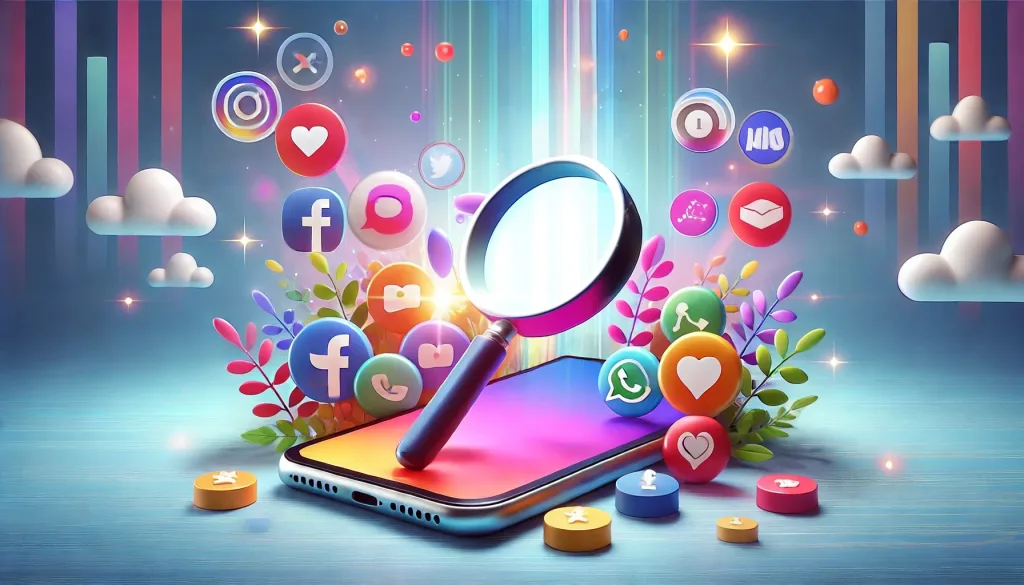
Effective Strategies for Promoting Mobile Apps
Promoting a mobile app requires a structured approach that combines various digital marketing techniques to reach the target audience effectively. With millions of apps available on major platforms, standing out demands not only creative marketing but also data-driven strategies that resonate with users. From optimizing app store listings to leveraging social media, these strategies ensure that your app gains visibility and attracts users. This article delves into three essential methods to achieve successful app promotion, offering actionable steps to help you build a loyal user base and drive downloads.
App Store Optimization (ASO)
App Store Optimization, or ASO, is a crucial step in mobile app promotion. ASO focuses on improving the app’s visibility within app store searches and enhancing its appeal to potential users. Just like SEO for websites, ASO helps users find your app when they search for specific keywords related to your app’s function. By refining elements such as the app’s title, description, and visuals, ASO can significantly increase your app’s organic downloads.
The key aspects of ASO include keyword selection, which ensures that users can find your app, and the creation of compelling visuals and descriptions that drive conversions. Unlike paid marketing, ASO is a sustainable, cost-effective strategy that can maintain its effectiveness over time if maintained properly. Investing in ASO not only maximizes visibility but also builds trust with users who find your app naturally through search results, enhancing their likelihood of engagement.
Keyword Research
Conducting keyword research is fundamental for ASO. Identifying relevant keywords based on user search behavior and competitor analysis helps to place your app in front of potential users. Keywords should reflect your app’s core functionality and target audience’s needs. Tools like Google Keyword Planner, Sensor Tower, and App Annie provide valuable insights into trending search terms and competitor keywords. A well-researched keyword strategy positions your app competitively, targeting terms users frequently search within the app store.
Once you’ve gathered a list of potential keywords, incorporate them naturally into your app’s title, subtitle, and description. App store algorithms prioritize titles with relevant keywords, but it’s important to avoid keyword stuffing. Instead, focus on phrases that align with user intent and clearly describe your app’s features. Regularly update your keywords to stay relevant to market trends, app updates, and user feedback.
Social Media Marketing
Social media platforms offer unparalleled opportunities to connect with potential app users. With billions of users across platforms like Facebook, Instagram, Twitter, and TikTok, social media provides a diverse landscape for reaching your target audience. By creating engaging content, running targeted ads, and leveraging social media trends, you can increase brand awareness and drive traffic to your app’s download page, boosting installs and engagement.
Creating a social media strategy tailored to your app’s audience is essential. For instance, lifestyle apps may perform well on Instagram, where visually rich content attracts users, while gaming apps could thrive on YouTube and Twitch through gameplay videos and live streams. Social media platforms enable you to showcase your app’s unique features, share user testimonials, and create a community around your app. Engaging with users directly builds brand loyalty and encourages organic sharing, which can greatly amplify your reach.
Influencer Collaborations
Partnering with influencers who resonate with your target audience can further boost app visibility. Influencers, with their established credibility and large following, can demonstrate the app’s features in an authentic way that resonates with their audience. An influencer’s endorsement acts as social proof, encouraging their followers to download and try the app for themselves. Whether through sponsored posts, stories, or in-depth reviews, influencers can showcase how the app adds value, whether it’s in entertainment, productivity, or lifestyle.
To maximize the impact of influencer marketing, select influencers whose content aligns with your app’s niche. Micro-influencers with a dedicated following often provide more engaged audiences than larger influencers, leading to better engagement rates and higher conversion. Setting measurable goals, like tracking downloads or engagement from influencer campaigns, helps you assess the return on investment for these collaborations. This approach not only builds trust with users but also positions your app as relevant and valuable in the influencer’s community.

Email Marketing Campaigns
Email marketing remains a powerful tool for app promotion, allowing you to reach an already engaged audience directly. Through personalized emails, you can inform existing subscribers about app updates, new features, and exclusive promotions, which can encourage users to download the app or increase their activity. Unlike other channels, email provides a direct, one-on-one connection with users, making it easier to build a loyal user base.
When designing an email marketing strategy, consider segmenting your audience based on their interests and behavior. For example, users who have recently downloaded your app may benefit from a welcome series guiding them through features, while more established users might appreciate updates on new functionalities. By tailoring your messages to each segment, you increase the likelihood of users engaging with your app in meaningful ways.
Segmentation and Personalization
Segmentation and personalization are key elements of effective email marketing. By dividing your email list based on demographics, user behavior, and preferences, you can create targeted campaigns that resonate with specific segments of your audience. For instance, you might send a re-engagement campaign to inactive users, offering a discount or special content to entice them back. Personalized messages that address users by name and recommend features based on their past activity create a more engaging experience that fosters brand loyalty.
Advanced personalization can go further by integrating data from in-app behavior. For instance, if a user frequently uses a particular feature, you could highlight updates or new functionalities related to that feature in your emails. This level of personalization enhances user experience, builds loyalty, and increases retention, ultimately contributing to your app’s growth in the competitive app market.
